
British Icons
by ghostwriter
Britain has so many icons for such a small island, albeit with an extremely colorful history, welcome to British Icons
Icons of Britain
It is impossible to choose just one image that truly represents Great Britain.
As we think of one British icon, it triggers another, and then another, to the point that the list of icons really becomes a very personal thing. I would imagine if ten people were asked to choose ten different icons of Britain, we would have a very large and varying list.
In fairness, the only way to build a list of true British Icons is to construct it alphabetically and build on it from readers' suggestions
Bonfire Night
"Remember, remember, the 5th of November"
If you were looking down onto Britain during the dark evening of November the 5th, the suburbs and countryside would be alight with bonfires and fireworks. You might even think that Britain was at war.
These are not little fires, but vast constructions of combustible materials from household furniture and garden buildings to salvaged burnable products. One important item that topped the bonfire was a 'Guy', made from stuffed clothes as an image of the infamous Guy Fawkes when in the year 1605, he and a number of other conspirators, plotted to blow up the Houses of Parliament.
Guy Fawkes was caught red-handed the vaults and consequently arrested. He was uncerimoniously thrown into the Tower of London and later tortured. He eventually confessed his crime and was sentenced to death. He was hung, drawn and quartered.
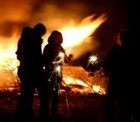 Bonfire Night, 5th ... | 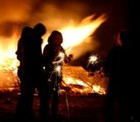 Bonfire Night, 5th ... |
Bowler Hat
Synonymous with Prime Minister Sir Winston Churchill and even Prince Philip, recently made a come back when seen worn by the British Princes William and Harry.
The Bowler has wasn't designed for the upper classes, in fact nobody thought it would ever become a status symbol. It was made for lowly gamekeepers, as hardhats to protect their heads from low tree branches and prickly shrubs.
The very first bowler hat was designed by Thomas and William Bowler, hatters for Lock & Co of St James's, London in 1849, the company still thrives to this very day.
The original bowler hat makers, Lock & Co
still in business today
 Lock & Co, the orig... |
Charles Dickens
A True British Icon
Probably the first author to bring reading books and short stories in serialised form to the masses. Gaining inspiration from real life experiences and developing characters from people he knew.
Much of his work was based on social reform and he introduced new values such as what we perceive as a 'traditional' English Christmas was actually a creation of Charles Dickens
Doctor Who
The Doctor Who series has been entertaining us since 1963 and almost every boy has at some time shouted “exter-min-ate” or played 'The Doctor' in battlle with Daleks.
Daleks, The Doctor and TARDIS are without doubt British icons.
The British Bobby
The Metropolitan police was formed in the 1820s by Sir Robert Peel, and the 'Bobby' is still an iconic symbol representing the British policeman
The original police uniform comprised very formal blue swallow tail coats with distinctive high collars designed to protect their necks from strangling and being garroted from behind. The police uniform top hat looked like a traditional top hat but cane reinforced so it strong enough to be used as a step to see over crowds and high walls.
In 1863 their smart tailcoats were eventually replaced with a shorter more practical tunic with more pockets, still with however with the high-collar for throat protection and the top hat was replaced with what was called 'the custodian helmet' made of lightweight cork covered with cloth.
After World War Two the tunic went through some changes and jacket lapels came in insteade of the collar, this style is still worn today for formal events but the body armour and stab proof vest with Hi Viz jackets are now standard uniform.
You might also like
Explore The Thames Foreshore - Find Hidden TreasureComing to London? Why not visit the Thames foreshore and discover the fragme...
Touring North WalesNorth Wales is a beautiful land steeped in history and myth. It is a land wit...
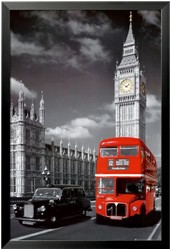










 The Real Meaning of Mary, Mary Quite Contraryon 06/10/2011
The Real Meaning of Mary, Mary Quite Contraryon 06/10/2011
 The Real Story of Little Jack Horneron 06/09/2011
The Real Story of Little Jack Horneron 06/09/2011
 Real meaning of Jack and Jillon 06/09/2011
Real meaning of Jack and Jillon 06/09/2011
 Real meaning of Baa Baa Black Sheepon 06/08/2011
Real meaning of Baa Baa Black Sheepon 06/08/2011
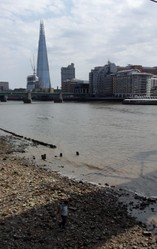
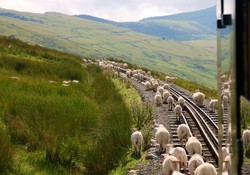
Comments